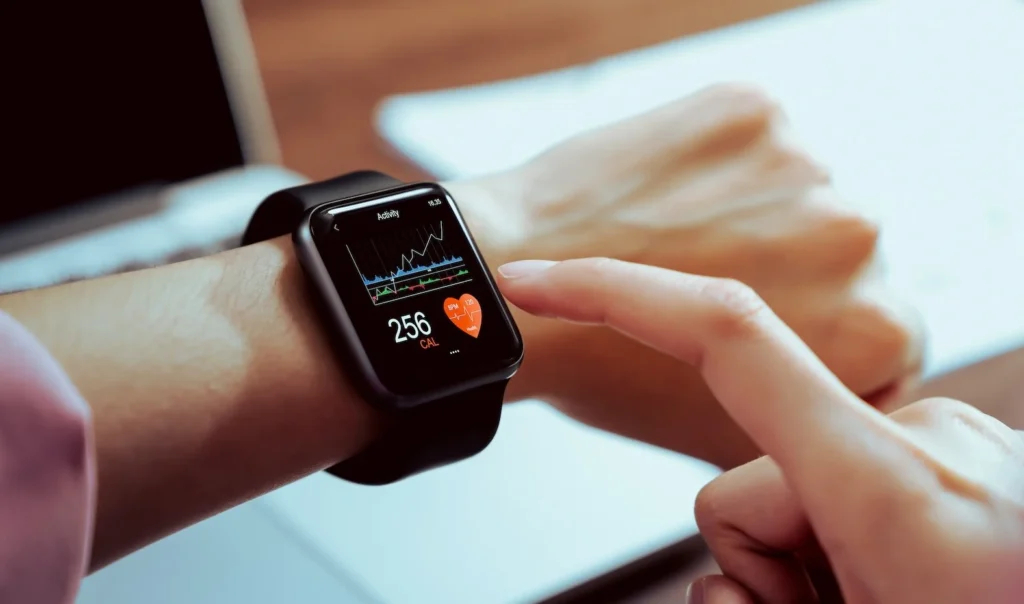Wearable fitness technology is fast becoming a staple among Nigerians seeking healthier lifestyles. From bustling urban centers like Lagos and Abuja to semi-urban hubs, tech-savvy consumers are increasingly strapping on smartwatches, fitness bands, and health monitors to track everything from heart rate and steps to sleep patterns and calorie burn.
This shift reflects a broader trend toward health consciousness, particularly among young professionals, fitness enthusiasts, and middle-class families. As mobile internet penetration rises and lifestyle-related illnesses become more common, individuals are turning to technology to take charge of their well-being.

Smartwatches Lead the Charge
Smartwatches are dominating the wearable tech space in Nigeria, thanks to their multifunctionality. Brands like Apple, Samsung, Xiaomi, Fitbit, and Huawei have established strong followings, especially among urban millennials. These devices offer a sleek blend of utility and style, serving not just as timekeepers but as personal wellness companions.
The features that make smartwatches appealing include real-time heart rate tracking, ECG monitoring, step counting, exercise logging, sleep quality assessment, and even blood oxygen saturation measurement. The integration of these tools with mobile health apps and smartphones has enhanced the appeal of smartwatches for tech-conscious Nigerians who want real-time health insights.
Fitness Apps and Digital Coaching Boost Engagement
The surge in wearable tech adoption is closely tied to the popularity of fitness apps and online coaching platforms. Apps like Google Fit, Apple Health, Samsung Health, and third-party platforms such as MyFitnessPal, Fitbit, and Strava have helped users set personal goals, monitor progress, and stay motivated.
Some local gyms and wellness centers have also embraced the digital shift, offering app-connected training programs, remote fitness consultations, and workout challenges integrated with wearable tech. The result is a more interactive and data-driven approach to fitness.
Health Awareness and Lifestyle Diseases Drive Demand
One of the key factors behind the growth in wearable fitness tech is increasing awareness of non-communicable diseases (NCDs) such as hypertension, obesity, diabetes, and heart disease. As these conditions rise across Nigeria—partly due to poor diets, sedentary living, and urban stress—consumers are seeking preventive tools.
Doctors and health experts have begun recommending wearable health monitors as part of long-term lifestyle management. Early adopters use the devices to monitor blood pressure trends, physical activity levels, and sleep quality—data that often helps in early diagnosis and healthier behavior changes.
Affordability and Access Improve
While premium smartwatches remain expensive for many Nigerians, the rise of affordable alternatives has helped bridge the gap. Brands like Xiaomi, Oraimo, Zepp, and itel offer fitness bands priced under ₦30,000 ($20–$40), making wearable tech accessible to broader segments of the population.
Local e-commerce platforms, including Jumia, Konga, and Slot, frequently offer discounts and installment payment plans, further boosting market penetration. Social media influencers and fitness content creators have also played a role in promoting the devices to large, youthful audiences.
Challenges Remain: Power, Connectivity, and Data Privacy
Despite the rising trend, several challenges hinder the mass adoption of fitness wearables in Nigeria. Chief among them is power supply—many users struggle with frequent charging due to erratic electricity. Additionally, not all users have access to smartphones or stable internet connectivity, which limits full usage of app-linked features.
Data privacy concerns have also begun to surface. As these devices collect sensitive health data, consumers and experts have called for better regulation, encryption protocols, and user consent frameworks to protect against misuse.
A Tech-Driven Health Future
Nigeria’s embrace of wearable fitness technology signals a powerful shift in how people view health and wellness. No longer is healthcare only reactive—today, many Nigerians want to prevent illness, optimize performance, and build healthier routines through personal data and smart tools.
If infrastructure improves and more local innovation enters the space, experts predict that wearable tech will become a central pillar in Nigeria’s digital health ecosystem—bridging the gap between technology and wellness for millions.







